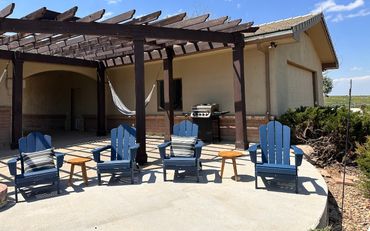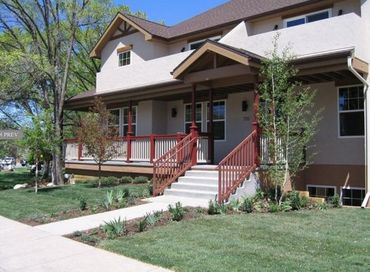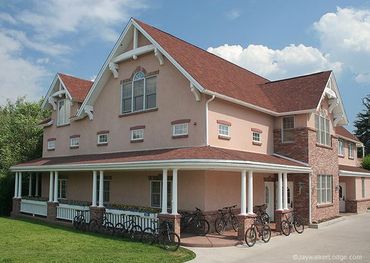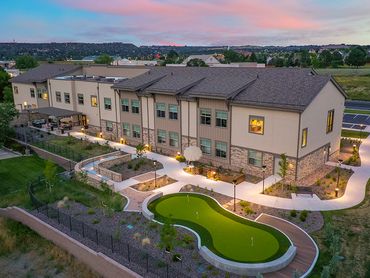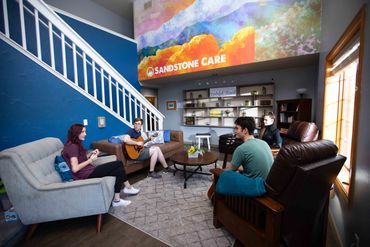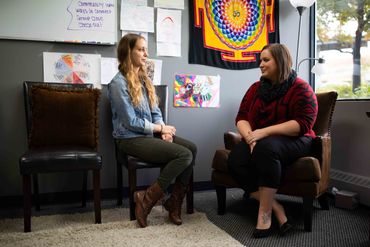
Cognitive Behavioral Therapy (CBT) for Addiction in Colorado
Find Cognitive Behavioral Therapy (CBT) treatment for addiction in Colorado. CBT helps treat addiction by identifying triggers, changing harmful thought patterns, building coping skills, and preventing relapse through improved self-awareness and decision-making. Find CBT treatment centers in Colorado today!
Treatment Centers in Colorado
All Treatment Centers in Colorado
Are You Covered For Treatment?
- Denver Rehabs
- Colorado Springs Rehabs
- Aurora Rehabs
- Pueblo Rehabs
- Fort Collins Rehabs
- Littleton Rehabs
- Boulder Rehabs
- Englewood Rehabs
- Commerce City Rehabs
- Wheat Ridge Rehabs
Rehab Insurance Coverage in Colorado
Rehab Centers in Colorado
Information About Rehab in Colorado
Latest Reviews
Latest Reviews of Rehabs in Colorado
Denver CARES Detoxification and Drug and Alcohol Rehabilitation
Dedicated staff, organized. Not enough funding, recidivism seems to be high. This is a great facility for those who cannot afford traditional rehab services. It's efficient and organized with very dedicated staff.
Counseling Center of the Rockies North
Very pleased with the services and quality of care / counseling offered here. Jennifer H. Is an outstanding counselor and therapist. I would highly recommend their services and the range of class/courses available.
About Colorado
Located in the western United States, Colorado is characterized by its rugged mountain landscapes, vast prairies, and abundant outdoor recreational opportunities. Known as the “Centennial State,” Colorado is home to a diverse population of over 5.8 million people 1, with the majority residing in the metropolitan areas of Denver, Colorado Springs, and Aurora.
Colorado’s cultural landscape is equally diverse, with a rich mix of Native American, Hispanic, and European influences. The state’s economy is primarily driven by the service sector, with industries such as healthcare, education, tourism, and technology playing significant roles. With its stunning natural beauty, vibrant culture, and innovative spirit, Colorado remains a fascinating and exciting state to reside in and explore.
Addiction in Colorado
Colorado, like many other states in the US, has been greatly affected by substance misuse and addiction among its residents. According to the Colorado Health Institute, the number of drug overdose deaths in Colorado reached an all-time high in 2020 with 1,477 fatalities being reported, marking a 38% surge from the previous year.2
The Colorado Health Access Survey of 2019 states that the percentage of people aged 18 and above who reported a substance use disorder between 2017 and 2018 was 11.9%. This was significantly higher than the national average of 7.7%.3
Unfortunately, rates of addiction in Colorado only seem to be increasing, and with fatal consequences. In 2021 alone, 1,887 Colorado residents died from a fatal drug overdose.4 According to a 2021 report, the latest treatment admission statistics show that alcohol, methamphetamine, heroin, and marijuana are still the primary substances responsible for driving people to seek treatment.5
Addiction Treatment in Colorado
If you struggle with substance misuse or a substance use disorder, it is crucial to seek treatment right away. Fortunately, there are various levels of addiction treatment available in Colorado for individuals seeking help for substance abuse. These include the following:
- Detox: Detox programs are designed to help individuals safely withdraw from drugs or alcohol under medical supervision. These programs typically last a few days to a week and aim to minimize the uncomfortable and potentially dangerous withdrawal symptoms.
- Inpatient Treatment: Inpatient treatment, also known as a residential treatment program, provides 24/7 care in a structured and supportive environment. These programs typically last for 30-90 days and offer a range of therapies, including individual, group, and behavioral therapy.
- Outpatient Treatment: Outpatient programs offer flexibility and allow individuals to receive treatment while still living at home. These programs vary in intensity, ranging from a few hours of treatment per week to several hours per day. Outpatient programs may also include individual and group counseling, as well as medication-assisted treatment.
Many addiction treatment programs also offer specialized therapies such as cognitive-behavioral therapy, holistic therapy, and trauma-focused therapy. Additionally, some programs may offer specialized treatment programs for certain populations, such as veterans, LGBTQ+ individuals, or individuals with co-occurring mental health disorders.
If you are seeking a higher level of luxury and privacy, luxury rehabs and private-funded rehabs may also be an option. Luxury rehabs offer high-end amenities such as gourmet meals, spa treatments, and private rooms. Private-funded rehabs may also offer more individualized treatment plans and a higher level of privacy.
If you are looking for addiction treatment in Colorado, you can use an online search tool to locate local rehab options near you. This tool allows you to search by location, type of program, and other criteria to find the best fit for your individual needs.
How Much Does Rehab Cost?
Most insurance plans will cover at least some portion of addiction treatment. However, the amount of coverage will depend on your specific insurance plan and situation. If you are insured, you can call your insurance provider to find out how treatment services will be covered.
If you are uninsured, there are still options available for addiction treatment. One of these options is to contact a state-funded treatment center. These centers are funded by the state government and offer addiction treatment services to those who are unable to pay. However, there may be a waiting list for state-funded treatment programs, and the availability of services may be limited.
In-Network Insurance Options
Length of Stay in Rehab
In addition to the different levels of addiction treatment available, there are also different options for the length of rehab stay. The most common rehab programs are 30-day, 60-day, and 90-day programs.
Long-term rehab is also an option for those who need a more intensive and structured program. These programs typically last anywhere from 6 months to 2 years, depending on the individual’s treatment needs, the specific facility, and the program.
Ultimately, the length of rehab stay will depend on the individual’s specific needs and circumstances. It’s important to consult with addiction treatment professionals to determine the best treatment plan for long-term recovery.
Recovery Starts Today
Achieving successful recovery from addiction heavily depends on finding a treatment plan that caters to your individual needs. Addiction is treatable, and with adequate support, you can transform your life and enjoy a satisfying, healthy, and sober future. Don’t hesitate to seek assistance and take the initial stride towards a more promising tomorrow.
Sources:
- Colorado Health Institute. October 21,2021. A Parallel Epidemic: More Overdose Deaths in 2020, Fentanyl Fatalities Spike.
- United States Census Bureau. July 1,2022. QuickFacts-Colorado.
- Colorado Health Institute. July 2020. Colorado Health Access Survey.
- Centers for Disease Control and Prevention. 2021. Drug Overdose Mortality by State.
- Office of The Colorado Attorney General. Substance Abuse Trend and Response Task Force. January 2021. Annual report.




